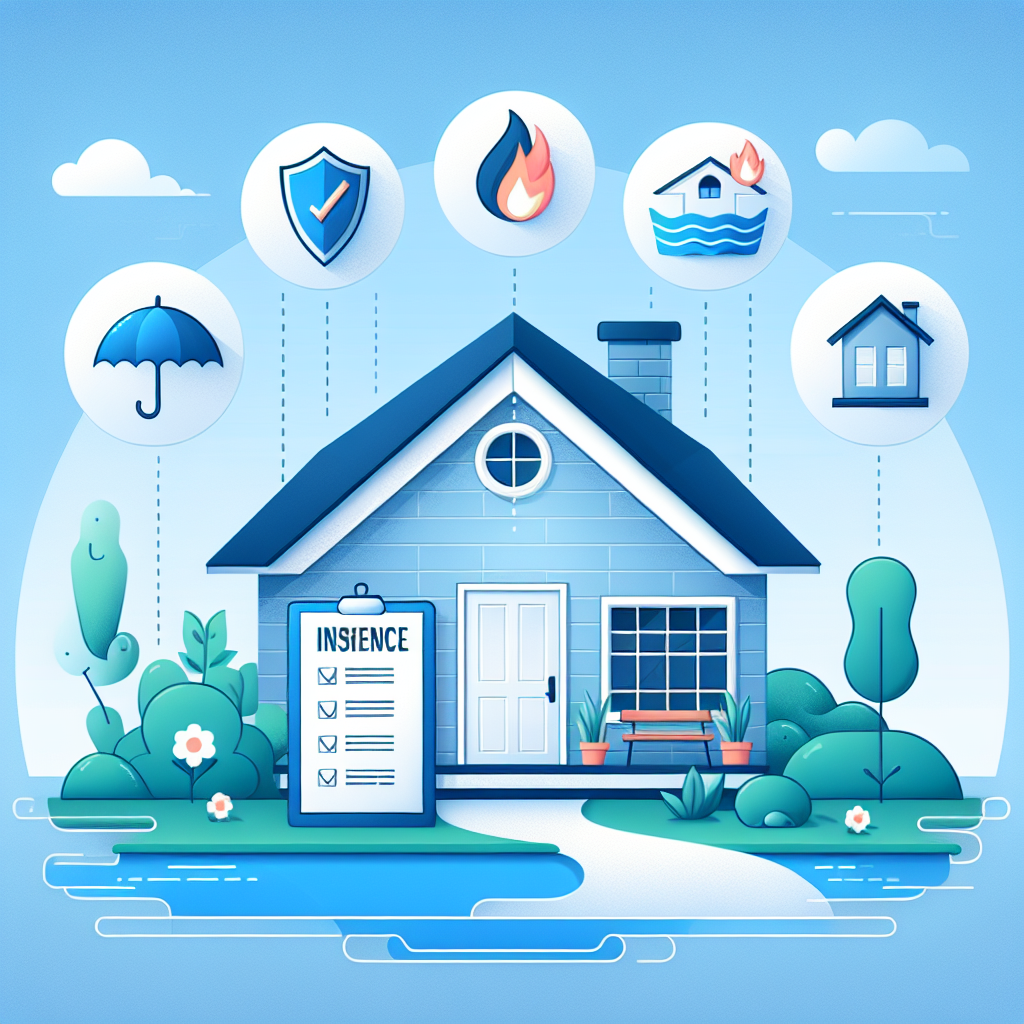Filed under Home Insurance on
Understanding Gap Insurance for Your Home Purchase

When you're in the exhilarating, albeit sometimes overwhelming, process of purchasing a home, you've probably encountered a myriad of financial terms that require unpacking. Among these, "gap insurance" might stand out, more commonly associated with auto insurance. But what about gap insurance for a home purchase? Understanding gap insurance for your home purchase can prove pivotal, safeguarding your investment against unforeseen financial snafus. Delve into this comprehensive guide to comprehend its importance, applicability, and how it might be the safety net you never knew you needed.
What is Gap Insurance?
Gap insurance, originally an abbreviation for "Guaranteed Asset Protection," is traditionally linked with vehicles, where it covers the difference, or 'gap,' between what you owe on a vehicle and the vehicle's actual cash value in the event of a total loss. Transferring this concept to real estate means this form of insurance bears the potential to shield your financial interests when discrepancies arise between the outstanding mortgage balance and the property's appraised value.
Is Gap Insurance Necessary for Your Home Purchase?
The necessity of gap insurance for a home purchase is contingent upon several factors. While it isn't ubiquitous for all homeowners, its relevance escalates under specific circumstances. If you're entering the housing market with only a small deposit, or if property values in your area are particularly volatile, understanding gap insurance for your home purchase becomes crucial in protecting against market downturns. Likewise, if there's an economic shift that negatively impacts property values soon after acquisition, gap insurance can offer a comforting buffer.
How Does Gap Insurance Work?
Understanding gap insurance for your home purchase involves grasping the intricacies of its operation. Typically activated in scenarios involving natural disasters or housing market downturns, gap insurance compensates the disparity between the remaining mortgage and what your standard home insurance will cover.
Example Scenarios
- If your property is prone to natural disasters, like flooding or earthquakes, leading to devaluation, gap insurance can supplement traditional homeowner's coverage.
- In the event of a sharp decrease in market value, it provides protection by ensuring you don't end up owing more than the house is worth should you need to sell urgently.
Key Benefits of Gap Insurance for Homeowners
Understanding gap insurance for your home purchase provides several strategic advantages:
- Financial Security: Ensures you're not over-leveraged if the real estate market takes a downturn.
- Peace of Mind: Offers reassurance and financial stability in times of crisis.
- Investment Protection: Aligns with specific scenarios where the property's value mismatches with the outstanding mortgage.
Who Should Consider Gap Insurance?
Not every homeowner requires gap insurance. However, it’s invaluable for:
- First-time homeowners with minimal deposits.
- Investors purchasing properties in areas with fluctuating market values.
- Someone in regions prone to natural calamities.
These cohorts particularly benefit from auditing and understanding gap insurance for their home purchase.
Evaluating Your Gap Insurance Needs
To determine the necessity of gap insurance, conduct a comprehensive evaluation by assessing:
- The volatility of property prices in your preferred area.
- Your equity in the home.
- Your overall risk tolerance and financial goals.
Analyzing these factors can provide clarity in navigating whether understanding gap insurance for your home purchase aligns with your property acquisition strategy.
Current Industry Trends and Expert Opinions
As housing markets experience cyclical ebbs and flows, industry experts emphasize prudence. According to real estate analysts, market volatility is forecasted to increase over the next decade due to economic uncertainties and environmental unpredictability. A growing number of financial advisors recommend understanding the benefits of gap insurance as a pragmatic safeguard, particularly in geographic zones susceptible to erratic climate and market swings.
Expert Opinion
Lisa Turner, a Senior Insurance Analyst, notes, “With the unpredictability of today's real estate markets paired with increasing environmental risks, gap insurance for home purchases represents a judicious tool for ensuring comprehensive coverage, especially for newly-minted homeowners.”
The Cost of Gap Insurance
Understanding gap insurance for your home purchase isn’t solely about the protection it affords; deciphering the associated costs is crucial. While exact premiums depend on various factors—such as property value, location, and personal credit score—it's conventionally more valuable in cases of high risk. Consulting with an insurance agent to tailor a package fitting your circumstances is advisable.
How to Purchase Gap Insurance
If you decide that gap insurance is right for you, follow these steps to secure your policy:
- Consultation: Reach out to multiple insurance providers for comparisons.
- Research: Investigate each provider's reputation, focusing on claims handling and customer service.
- Comparison: Weigh coverage options and cost against your specific needs.
- Decision: Once satisfied, proceed with securing your gap insurance policy.
Conclusion
In the complex realm of real estate transactions, understanding gap insurance for your home purchase can be a pivotal aspect of safeguarding your investment. While it might not be essential for everyone, under the right circumstances, it offers a robust shield against unforeseen financial pitfalls. By appreciating the nuances of your property and market position, and consulting with industry experts, you can make an informed decision, ensuring your home investment remains steadfast and secure against the ever-changing tides of the market.




